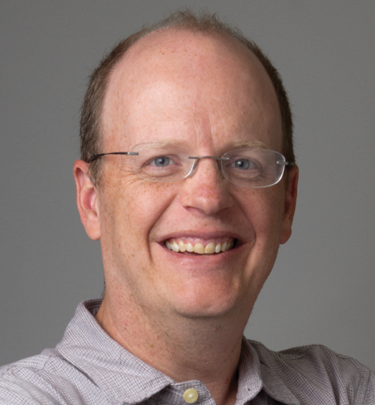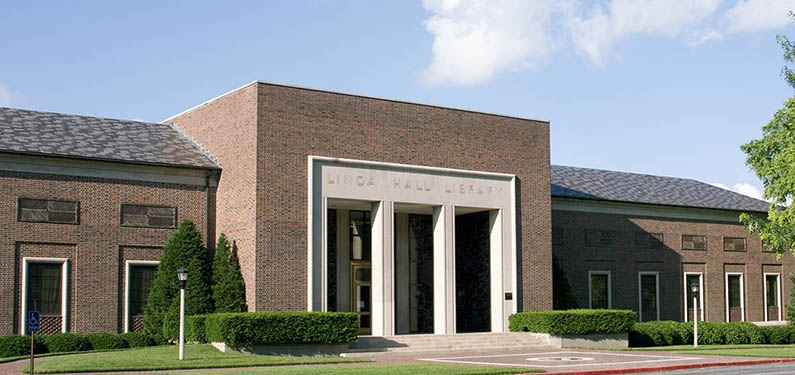Jeff Rydberg-Cox, Ph.D.,Curators' Distinguished Professor in the UMKC English Languages and Literature Department, is the first-ever Scholar-in-Residence at the Linda Hall Library.
Located at 5109 Cherry Street next to the University of Missouri-Kansas City campus, the Linda Hall Library is an independent research library devoted to science, engineering and technology. This newly-established position provides support for scholars in the Kansas City metropolitan area whose research would benefit from sustained engagement with the library’s collections.

“Linda Hall Library is full of treasures, and it has amazing collections covering science, engineering and technology with a spectacular history of science collection,” said Rydberg-Cox. “I was so happy that the library gave me the opportunity to spend an uninterrupted stretch of time working with their collections.”
As scholar-in-residence, Rydberg-Cox used his experience in digital humanities and put it into practice. One way he did that was through lectures, such as the virtual presentation on July 30, “Modeling the Sources and the Topics of Pliny’s Natural History.”
Gaius Plinius Secundus, called Pliny the Elder, was a Roman author. He wrote Naturalis Historia, which became an editorial model for later encyclopedias. In the July lecture, Rydberg-Cox discussed the nature of Pliny’s work, how other scholars and editors have tried to make the work more manageable and the ways that network analysis and other quantitative approaches can help people understand the sources that Pliny used.
“I am very excited to start developing projects with the students in my digital humanities seminar and my course on methods for digital publications,” said Rydberg-Cox. “I have a long wish list of other works in the History of Science Collection that I would like to study and integrate into my classes, such as a 1522 printed edition of Natural Questions by Seneca the Younger, a near contemporary of Pliny, a 1472 printing of Appian’s history of the Roman civil wars, a 1515 edition of Lucretius’ On the Nature of Things, and the library’s six editions of Vitruvius’ work on architecture from the 16th and 17th centuries.”
Rydberg-Cox started at UMKC during the 2000-2001 academic year. He teaches courses on ancient literature, digital humanities and representations of the ancient world in film. His research is on methodologies for digitizing texts and other materials in the humanities, multispectral analysis of manuscripts and early printed books, statistical analysis of Ancient Greek texts and applying techniques from the field of network analysis to literary texts.

